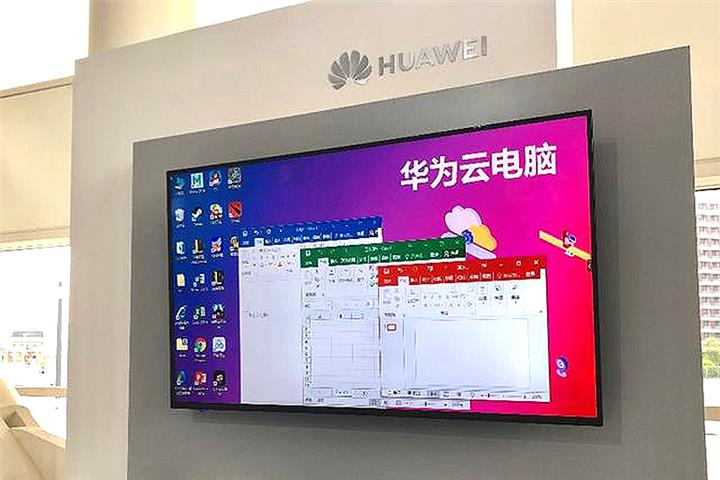 Huawei Cloud Computer App to Cease Service Next Month
Huawei Cloud Computer App to Cease Service Next Month(Yicai Global) July 23 -- After nearly three years of operation, the cloud computer app owned by Chinese telecoms equipment giant Huawei Technologies will cease service next month. High usage fees and inadequate network quality have been major constraints on the growth of such products.
The service will cease on Aug. 15 due to a change in the Shenzhen-based firm’s business development strategy, after which user data will be permanently deleted and will not be recoverable, Huawei’s cloud computer team said via the app on July 21. It also reminded users to transfer all data in a timely manner and unsubscribe from the plan they bought.
Launched in 2018, the Huawei Cloud Computer app has now been removed from Huawei’s app store. It allowed users to turn their Huawei handsets or tablets into simulated computers powered by the Windows operating system. They could then complete tasks that the Android system cannot handle, such as working with computer software.
According to information released by Huawei Cloud Computer, clients could use its services for CNY4 (62 US cents) an hour, or subscribe to a monthly economy plan for CNY29.8 (USD4.60) or a standard plan for CNY59.8.
Users pointed out that the service was quite demanding on the stability of mobile networks as some users not only used the service to edit texts, but also used functions like games and audio and video clip editors. The lag caused by the network’s latency also could severely impact the user experience, they said.
An insider at Huawei told Yicai Global that the cloud computer business has not fared too well in its three years of operation. Also, its functions to some degree resemble those of Huawei’s self-developed Harmony operating system, which supports collaborative operations between phones, tablets and laptops equipped with the OS.
Meanwhile, other tech giants, including Chinese e-commerce giant Alibaba Group Holding and US technology company Microsoft, have also laid out their cloud computer business plans. Microsoft is to launch Windows 365 next month, which will support devices with iOS and Android operating systems to run Windows.
Editors: Dou Shicong, Peter Thomas